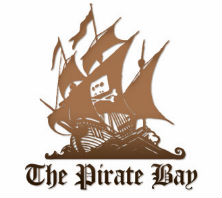UK ISPs and Copyright Holders Praise New Piracy Warning System
samedi 19 juillet 2014 à 14:42 In an effort to curb online piracy, earlier this year the movie and music industries reached agreement with the UK’s leading ISPs to send warnings to alleged copyright infringers.
In an effort to curb online piracy, earlier this year the movie and music industries reached agreement with the UK’s leading ISPs to send warnings to alleged copyright infringers.
As we previously revealed, the Voluntary Copyright Alert Programme (VCAP) will only apply to P2P file-sharing and will mainly focus on repeat infringers.
The monitoring will be carried out by a third-party company and unlike other warning systems there won’t be any punishments. The main purpose of the warnings is to alert and educate copyright infringers, in the hope they will move over to legal alternatives.
The program was officially announced today and received support from all parties involved, including the UK Government which is financially backing the measures. Without exception they all praise the warning system and the accompanying educational campaign.
“It is fantastic that the UK creative community and ISPs have come together in partnership to address online copyright infringement and raise awareness about the multitude of legitimate online services available to consumers. We are also grateful to the UK Government for backing this important new initiative,” the MPA’s Chris Marcich comments.
Thus far BT, Sky, TalkTalk and Virgin Media have agreed to send warnings to customers whose connections are being used for unauthorized file-sharing. Commenting on the collaboration, all four ISPs praised the educational nature of the VCAP program.
“BT is committed to supporting the creative industries by helping to tackle the problem of online piracy while ensuring the best possible experience for its customers. That’s why we’ve worked very hard with rights-holders and other leading ISPs to develop a voluntary programme based on consumer education and awareness which promotes the use of legal online content.” BT Consumer CEO John Petter says.
Lyssa McGowan, Director of Sky Broadband, is equally delighted by the anti-piracy agreement.
“As both a content creator and ISP, we understand how vital it is to tackle online copyright infringement in order to protect future investment in content. As a result, we’re pleased [...] to help make consumers aware of illegal downloading and point them towards the wide range of legitimate sites where they can enjoy great content,” she notes.
The comments from the other ISPs, copyright holder groups, and the Government, are all variations on the same theme. The parties praise the new awareness campaign and note that the main goal is to convert consumers to legal alternatives through education.
The question that remains, however, is how genuine all this positivity really is.
While the scheme is being overwhelmed with praise, the parties also announced that the first warning emails will not be sent out before next summer, possibly even later. These delays are a thorn in the side of both copyright holders and the Government, suggesting that negotiations behind the scenes are less uplifting.
This also shows in earlier comments from the Prime Minister’s IP advisor Mike Weatherly who said that it’s already time to think about VCAP’s potential failure. He suggested that the program needs to be followed by something more enforceable, including disconnections, fines and jail sentences.
More background and details on the planned piracy warning are available in our previous VCAP overview article.
Source: TorrentFreak, for the latest info on copyright, file-sharing and anonymous VPN services.




